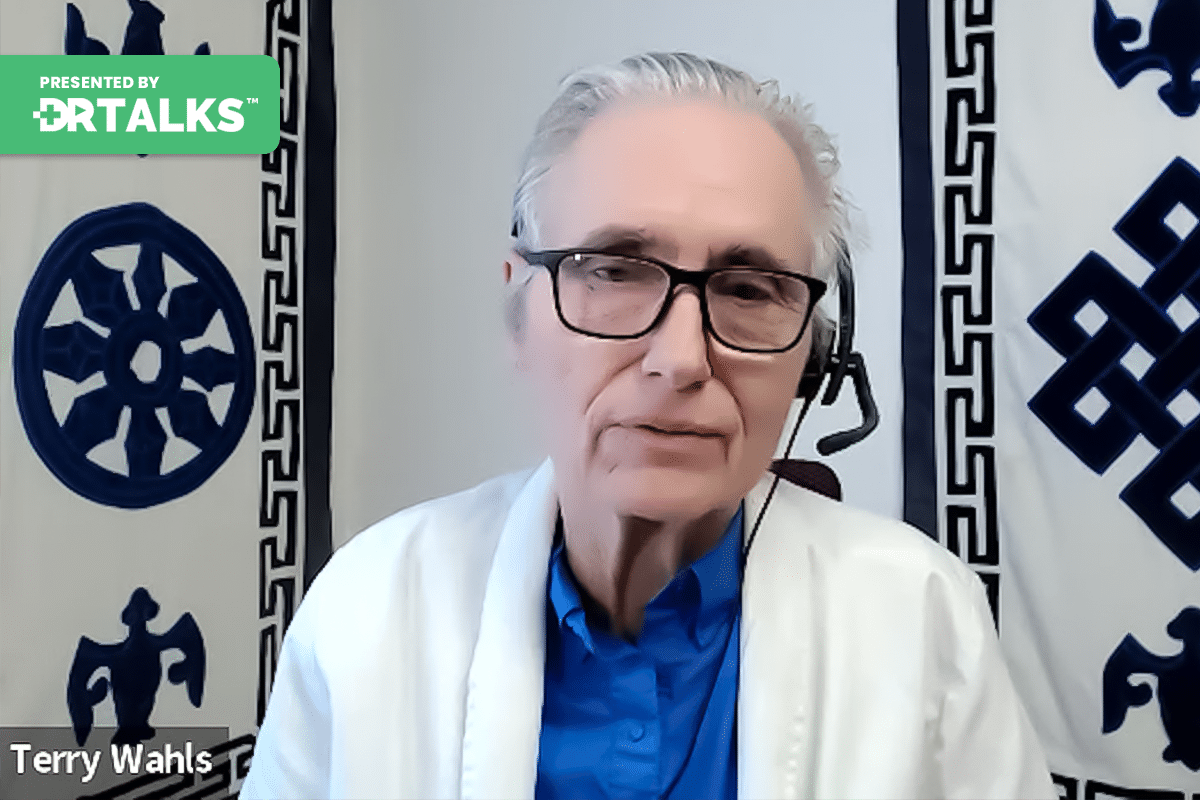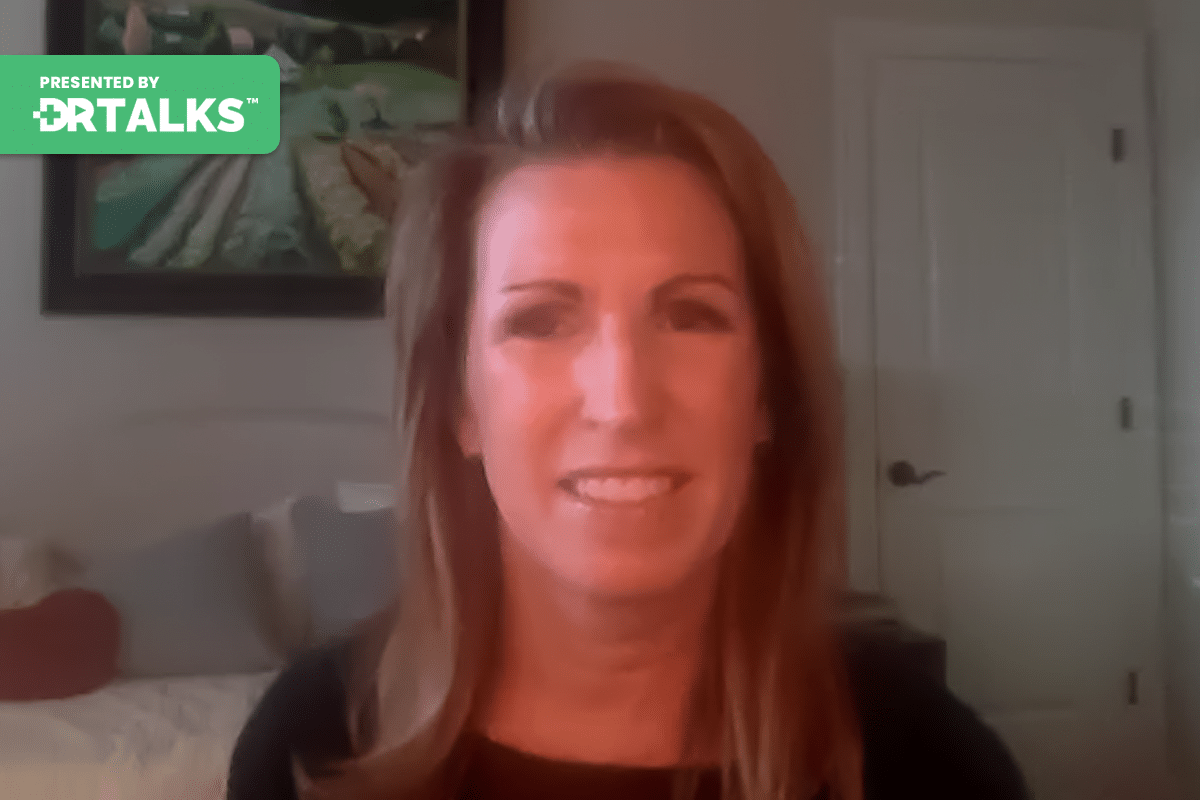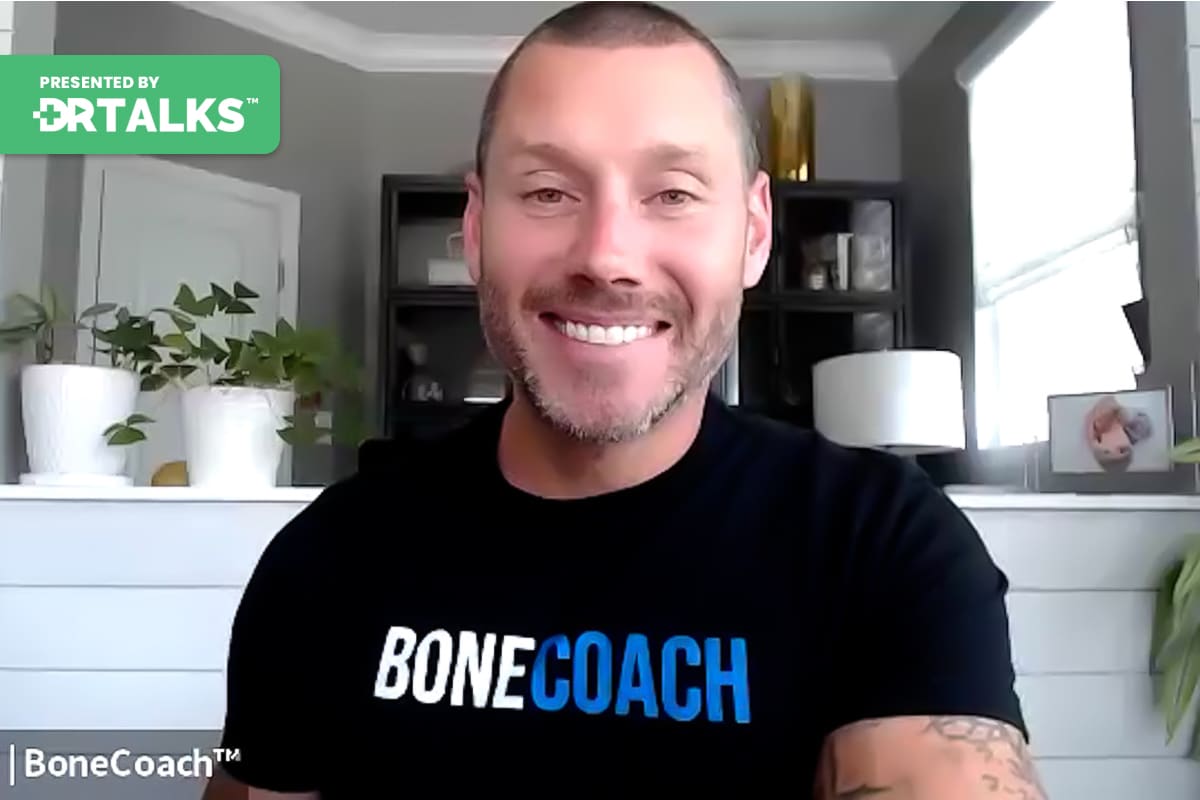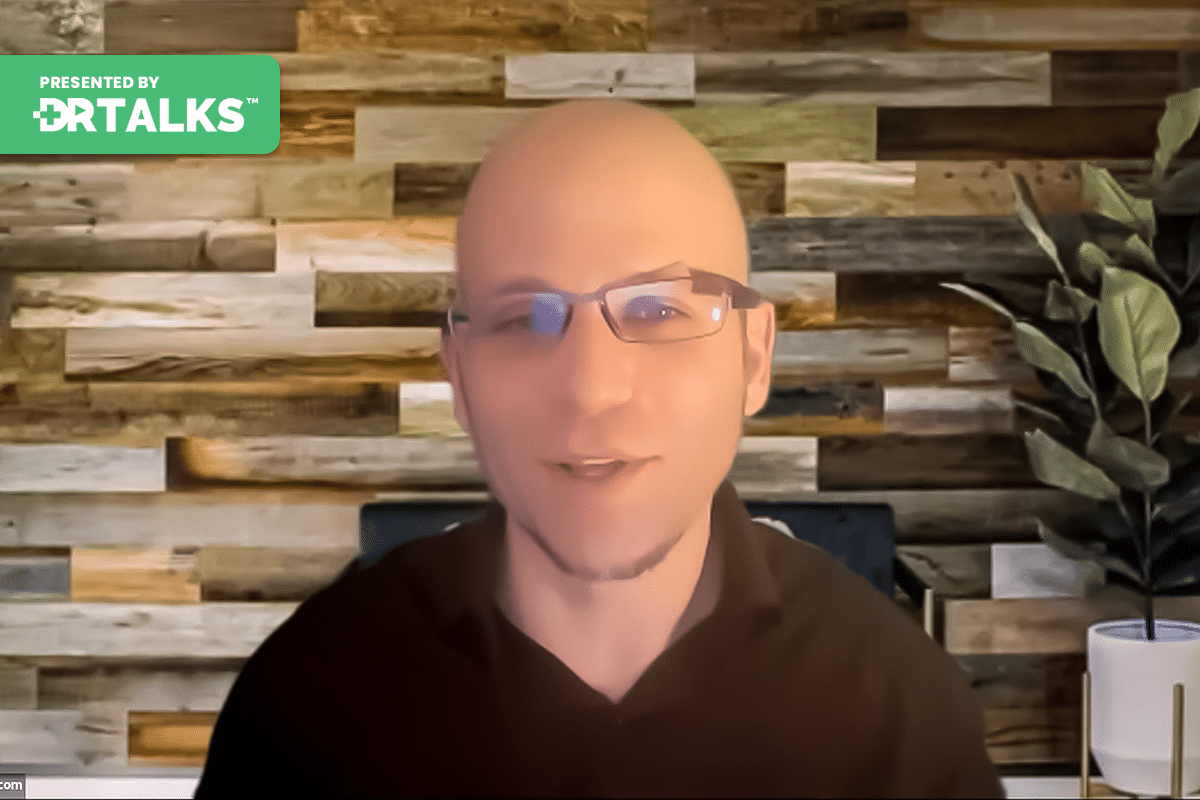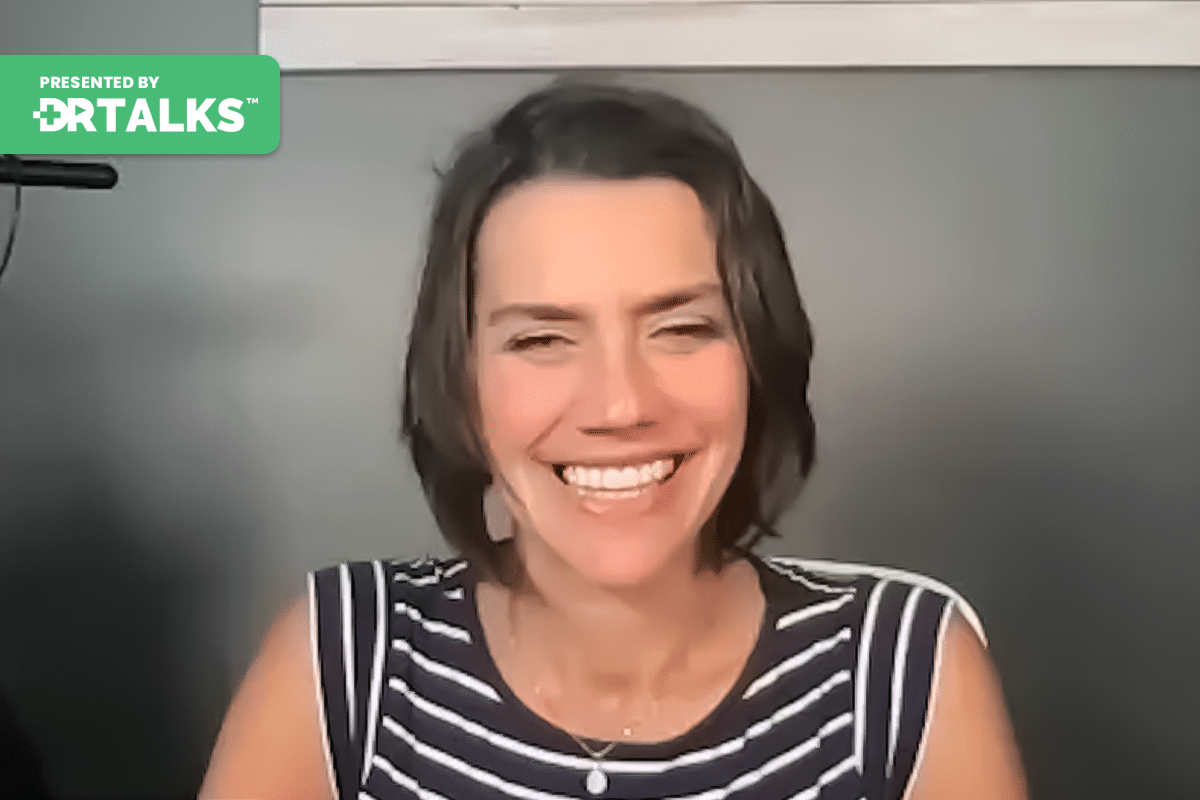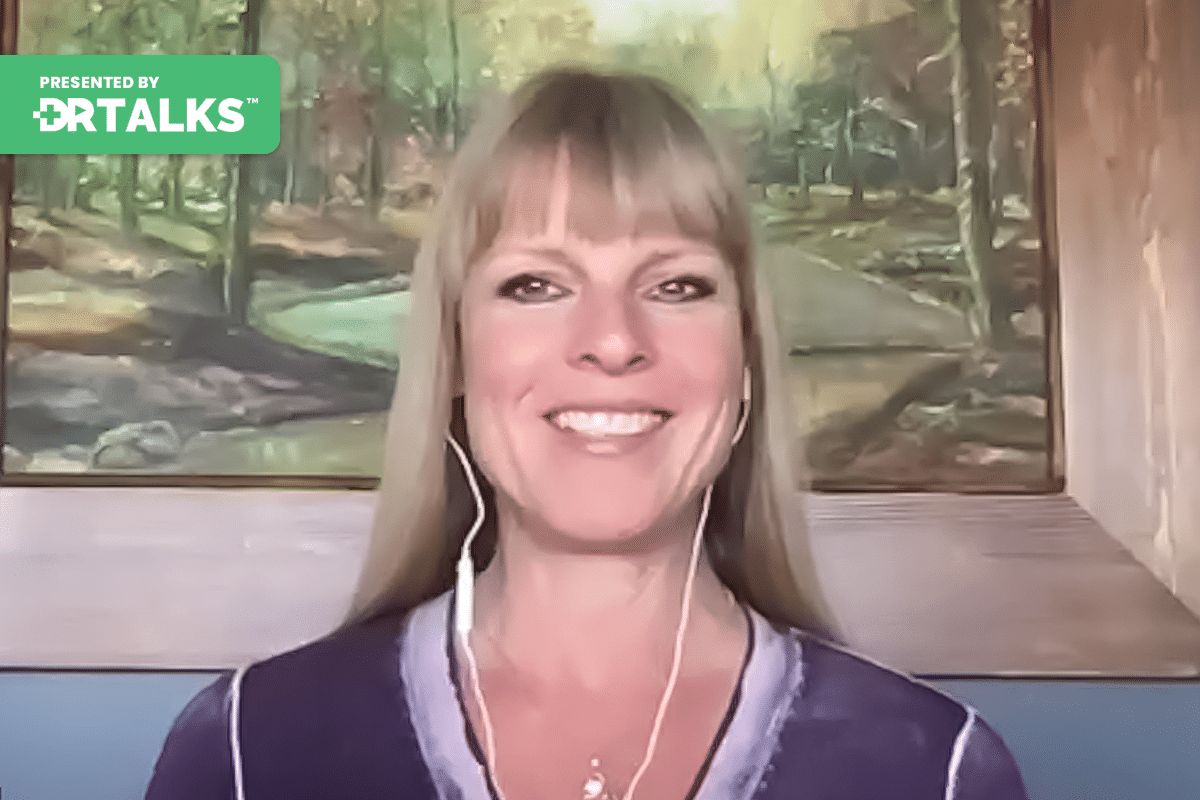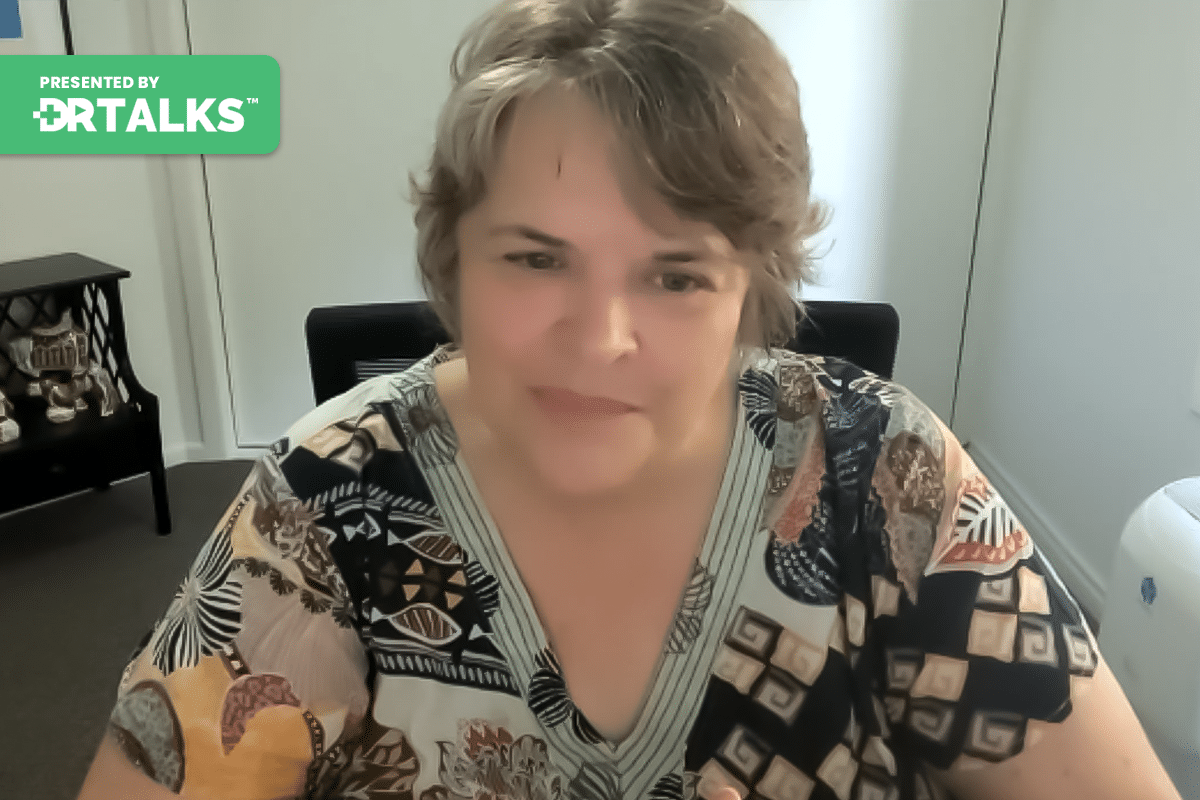Join the discussion below

Dr. Jenny Pfleghaar is a double board certified physician in Emergency Medicine and Integrative Medicine. She graduated from Lake Erie College of Osteopathic Medicine. She is the author of Eat. Sleep. Move. Breath. A Beginner's Guide to Living A Healthy Lifestyle. Dr. Jen is a board member for the Invisible... Read More

Dr. Terry Wahls is an Institute for Functional Medicine Certified Practitioner and a board-certified internal medicine physician. She also conducts clinical trials testing the efficacy of diet and lifestyle in the setting of multiple sclerosis. In 2018 she was awarded the Institute for Functional Medicine’s Linus Pauling Award for her... Read More
- Understand how dietary choices can significantly influence mood, sleep, fatigue, and overall quality of life
- Discover the overlap between Hashimoto’s, Lyme, and other autoimmune conditions with neurological and psychological symptoms, and multiple sclerosis (MS)
- Learn about the benefits of the modified Paleolithic diet (Wahls elimination), shown in research to be effective in reducing fatigue and improving life quality
Related Topics
Anxiety, Brain, Brain Fog, Clinical Research, Culinary Medicine, Depression, Diet, Dietary Intervention Studies, Fatigue, Food As Medicine, Forest Plots, Hand Function, Lifestyle Medicine, Margarine, MD, Meditation, Mental Health, Mitochondria, Mood, Multiple Sclerosis, Neuroprotection, Nutrition, Paleo Diet, Pathophysiology, Pharmacology, Physical Health, Physical Therapy, Physiology, Primary Progressive Ms, Quality Of Life, Relapsing Remitting Ms, Secondary Progressive Ms, Supplements, Terry Wahls, Walking, Walking EnduranceJen Pfleghaar, DO, FACEP
Hello. Welcome back to the summit. So excited to have everyone back today. So excited to have Dr. Terry Wahls. I met her in person and who was so excited to meet her. She is a legend when it comes to MS and healing autoimmune disease. So, Dr. Wahls, welcome. Thank you so much for being here. Tell us about yourself.
Terry Wahls, MD
Okay. So I am a patient. I have multiple sclerosis which converted to secondary progressive M.S., spent four years at sort of clean wheelchair. But fortunately, I am also a physician. Based on my review of the research in the literature, I would create a diet and lifestyle program that restored my health and vitality, got me out of the wheelchair, and my chair of medicine redirected me and gave me the job of getting to do research to test can others implement what I do? And we’ve done seven trials. We’re now recruiting for eight clinical trial. And I’ve really made it my mission to teach others with multiple sclerosis and others with other autoimmune conditions that involve the brain and neurologic and psychological symptoms, what they can do to restore their health and vitality.
Jen Pfleghaar, DO, FACEP
That’s amazing. And your story was so special. What you went through and you suffered from multiple sclerosis and your pain due to that.
Terry Wahls, MD
So I can tell you audience that in a very intimate and personal way. So if you go back 20 years, 20 years ago, out walking with my wife, Jackie, a half mile from home, my left leg grows weak. Now, dragon, I hobble home. I see the neurologist who says, Terry, this could be bad or really, really bad. And I begin my workup. As I’m going through that workup, I think about the 20 years of war, seeing electrical face pain. I and I’m like, I don’t want to become disabled. And so I’m praying for a rapidly fatal diagnosis. Three weeks later, I hear multiple cirrhosis. No, I see the best people in the country. I take the very newest drugs. Three years later, I hear tilt, recline, wheelchair. Detroit General Neuralgia is relentlessly worse. My ten year old daughter hugs me as tears streamed down my face, a breeze, light, sound trigger the pain. That’s when I like. I know how bad this is going to be, which is really terrible. I start reading the basic science. I decide mitochondria are the driver of disability. I create a supplement cocktail to support my mitochondria. The speed of my decline slows.
Now, mind you, I’ve already been following the paleo diet for three years. At that point. I discover studies in electrical stimulation of muscles. Ask my physical therapist. Can I try that? He calls it E stem. He says it’s for athletes. He says it’s really quite painful and he knows I have a lot of M.S. related pain, but he does give me a test session and it hurts bad. I mean, really bad, but when it’s over, I feel great, he says. That’s because of the endorphins. So we add the stem to my physical therapy. Then I discover the Institute for Functional Medicine. They have a great course on neuroprotection. I take that I have a longer list of supplements done, and then I had this big aha. And now in retrospect I’m really embarrassed by how long it took to have this Aha. But you know fortunately I had it and it’s like, what if I redesign my paleo diet based on this long list of supplements I’m taking now? Where are those ingredients in the food supply? So I redesigned my paleo diet. So now it’s not about what to avoid. It’s as just as important what to stress. And at I start this new way of eating. December 26, 2007. At that time, I am so weak I cannot sit up in a regular chair. I’m in a zero gravity chair with my knees higher than my nose. I’m still stuffing residents, but I know I will probably soon have to stop because I’m having trouble with brain fog. My face pain is much more relentless.
A light sound triggers the pain when it’s so. I am in a really bad way. In 2007, I start this new way of eating. By the end of January, it’s clear that my mental clarity is improve, my fatigue is gone, my pain is less. My physical therapist says, Terry, you aren’t getting stronger. He advances my exercise. By March, I am walking around the hospital with walking sticks by the end of March. I don’t need the walking Six anymore. And then on Mother’s Day, I tell my family I want to try riding my bike. We have an emergency family meeting, Jackie tells my son, six foot five, six year old boy, you jog alongside the left. She tells my 13 year old daughter to jog alongside in the right and she’ll jog following. I don’t get on my bike and I bike around the block. That big six year old boy, he’s crying. A 13 year old girl, she’s cried. Jackie’s cried. You know what? I still cry when I retell that moment because that’s when I understood that the current understanding of multiple sclerosis of secondary progressive Ms. is incomplete. And who knew how much recovery might be possible? And then in October and after that, you know, I’m biking a little bit more every day. Jackie signed me up for the courage, right? 18.5 miles. And once again, what when we cross that finish line, you know, my kids are crying. Jackie’s crying, I’m crying. And that changes how I think about disease and health. It will change the way I practice medicine and it will change the focus of the research that I do. Forgive me for crying, you know, I can’t tell that story without crying.
Jen Pfleghaar, DO, FACEP
Dr. Wahls, it’s so touching. It’s so beautiful to hear that story and your journey. Amazing, especially from you. Like you said, you were on the best supplements, you were on the bus, medications and it didn’t really do.
Terry Wahls, MD
Enough, you know? Yeah. Wasn’t enough.
Jen Pfleghaar, DO, FACEP
So now this brought you this passion and your healing has brought you into clinical research. What have you found in the clinical research?
Terry Wahls, MD
So we’ve done seven trials. We’re in our eighth trial now and I’ve studied secondary progressive, multiple sclerosis, primary progressive, Ms. relapsing remitting multiple sclerosis and we’re able to show that people can implement diet, they can implement meditation, physical therapy, and that as they do, fatigue goes down, quality of life goes up, anxiety goes down, depression goes down. And, you know, with our folks, Joan, who were severely disabled with secondary primary progressive MS, you anticipate a 10 to 15% worsening of their walking and hand function every year? Yeah. Once you get that progressive phase, we don’t have drugs that stop it we can slow it some as a group that first 20 folks that we brought in as a group we kept them flat. They didn’t get worse as a group. Half of those folks improved. They walked more effectively. Some of them really quite dramatically in hand function began to improve now in relapsing remitting Ms. people are not as disabled so we are able to show that they’re more sense of measure is walking endurance that is how far you can walk in 6 minutes and that improves. And what’s interesting about those studies journeys in the relapsing remitting Ms. studies, we are just using diet. And so we told them don’t start an exercise program unless you’re physical therapy, unless your physician refers you to someone, because we want to measure the effect of diet. So in a diet steady walk, endurance improves quite remarkably. Now, isn’t that interesting? You fix that. And it’s not that I expect diet to radically improve walking, but it did improved how far people could walk.
Jen Pfleghaar, DO, FACEP
It’s amazing. Food is medicine for sure.
Terry Wahls, MD
And medicine, you know, it. And I remind my patients in my practice, in our clinical trials, that the food you eat becomes the body you have tomorrow and the next week and the next month, the next year. So if you aren’t eating the building blocks that your body needs, your body will mostly deteriorate.
Jen Pfleghaar, DO, FACEP
Absolutely. And I want, you know, a traditional conventional medical school that we went to. There isn’t a lot of focus on food and how food affects our body and affects our mitochondria and can cause disease, unfortunately. So it’s great that.
Terry Wahls, MD
We have a lot of pharmacology. We have some physiology, we have pathophysiology, but we had no nutrition. The few talks that we had stressed cholesterol is the problem. They should have margarine instead of butter. Eggs were the problem. The sun was the problem. And we had nothing on behavior change, nothing on lifestyle. Of course, I’m senior enough that I was going to medical school in the late 1970s. I graduated in 1982, so there has been some change, but unfortunately, lifestyle medicine, culinary medicine is not a standard part of the curriculum.
Jen Pfleghaar, DO, FACEP
It is not. You’re right about the margarine, and that is the first thing from health. There could be.
Terry Wahls, MD
Yeah, that’s pretty terrible.
Jen Pfleghaar, DO, FACEP
Now, there is a recent study talking about diet. The study was comparing dietary intervention studies for mice. What did that find exactly?
Terry Wahls, MD
Oh, my God, that is such an exciting. So it just came out January 24th, was published in Neurology, the highest impact journal that the neurologists who take care of most patients read. And they looked at 12 studies that have used a diet intervention in multiple sclerosis. And it was a randomized. And then they do something called forest plots. That compares the all of these studies. And you can see is the bar on the side of showing benefit or on the side of showing harm. And if the bar is entirely on the side of benefit, then you have confidence that that intervention is really good for you. And so we looked at fatigue, looked at mental health, quality of life, and at physical health, quality of life. And there are three diets that were helpful for reducing fatigue. The modified Paleo Mediterranean and a low fat diet. And there were two diets that were helpful for mental health, quality of life and physical health, quality of life. And the diet that was the most helpful for fatigue and quality of life was the modified paleo diet, the Mediterranean diet also helpful, and the low fat diet. And what do you think is really exciting? Janice They had an editorial in the article and the editorial said, you know what, there is enough evidence to say that really matters and that diet should be part of the treatment for people with her mass.
Jen Pfleghaar, DO, FACEP
That’s amazing, because when you go to a doctor, especially neurologists, they’re not usually talking to you about diet. So hopefully a study like this will make it more mainstream or make it a normal part of the conversation. When someone with M.S. or any autoimmune disease goes in to talk with their doctor because yeah, it’s not just them. As you know, all autoimmune diseases are definitely affected by nutrition and diet.
Terry Wahls, MD
You know, the autoimmune diseases that have a anxiety component, depression component or any kind of neurologic component are those are neuro immune diseases. I know this is Hashimoto’s in many folks with Hashimoto’s have anxiety, depression, fatigue, and so they have a neuro immune component. So yes, it should be a part of that wellness plan and I would advocate that the modified paleo diet would be a very effective intervention for those folks. If they can’t do that, at least do the Mediterranean diet, don’t do the standard American diet.
Jen Pfleghaar, DO, FACEP
Right? Absolutely. The standard American diet for the listeners that don’t know what that is, that’s seed oils, McDonald’s, hamburgers and fries. That’s 50% of your food comes from carbs and refined sugars. So that’s what we want to stay away from. So the paleo diet is going to incorporate more fruits and vegetables, healthy meats. So that’s the focus here. We really want to get our nutrients, phytonutrients and oxidants from our diet. It’s really important. So, Dr. Wahls, tell us more about your new research. It’s awesome that you do research.
Terry Wahls, MD
Oh, yeah.
Jen Pfleghaar, DO, FACEP
I actually recruiting for, I think, efficacy of diet on quality of life and multiple sclerosis. So it’s an actual study you’re doing.
Terry Wahls, MD
Yeah, yeah. So again, I think it’s so important that we do dietary intervention studies and the next step was to do a longer study, one that will last two years and will include images of the brain. So these will be research MRI’s. So no gadolinium at baseline and at 24 months, the intervention that will be using, we have the ketogenic diet that is olive oil based. We also time restrict the eating. So it’s 6 to 8 hours a probably skipping breakfast will be what most people do and lowering carbs about 50 grams of carbs a day and about four tablespoons of olive oil every day. The other intervention diet is a modified paleo diet, commonly thought of as the Wahls diet and the two intervention arms will meet with a dietitian to get trained on the diet to help them understand how to implement it, given their values, taste and cultural preferences. And then they will have a monthly group call where they can ask questions and talk with other participants in the intervention are people submit their questions.
I create a video each month for the ketogenic arm for the paleo arm answering the questions for the usual diet arm. People in that arm will give them tips every month that will come with an email sequence or a PDF or a video that basically is a cooking tip sheet. And again, you come in, you have to have relapsing remitting multiple sclerosis age 18 to 70, and you have to be willing to be randomized to one of these three diets. You can be following a ketogenic diet or a mediterranean diet or the paleo diet or even a vegan diet. But you have to be willing to be randomized such that if you’re randomized to the paleo diet, you will do that. So you’ll have to be willing to begin eating meat if you’re randomized to the ketogenic diet, you have to be willing to do that. So a diet that really stresses olive oil or if you’re in the usual diet arm, you get to continue on your whatever your usual dietary pattern is, are be doing a bunch of questionnaires every three months coming in to see us at MUSC month three and month 24.
Jen Pfleghaar, DO, FACEP
This is amazing. This is quite a big it’s a very big say.
Terry Wahls, MD
Yeah. 156 people followed for two years. This would be one of the largest, longest intervention studies where we’re saving blood and saving saliva as we go so we can analyze a well, the microbiome, we can analyze the metabolites. We are super, super excited.
Jen Pfleghaar, DO, FACEP
Wow. That’s amazing. Tell us a little bit more about the scans that you’re doing.
Terry Wahls, MD
Well, one of the things one of the questions that we’re asking is what happens with brain volume change? You see, Jen, a people with M.S., we you can take drugs that are really very effective at turning off relapses, turning off enhancing lesions. But these drugs have not been effective at preventing brain by brain volume loss, which is why cognitive decline frailty in early dementia is a problem for people with MS I have a hypothesis that by teaching people how to improve their diet, I can get them to healthy rates of brain aging and that we’ll be able to measure that because we have these very nice MRI eyes at baseline 24 months and that we have a the ability to do the MRI’s without gadolinium so so and because we’re just looking at brain volume will be able to see did we get people back to healthy rates of aging. And I’m very hopeful that in fact we’ll be able to do that.
Jen Pfleghaar, DO, FACEP
That’s great. So you’re looking at the volume more than the actual MSK lesions, and then your data points are quality of life.
Terry Wahls, MD
So quality of life, walking function, hand function, working memory and vision function. And then we will also have mood quality of life fatigue. And for people with M.S., the reasons we lose, we lose our jobs fatigue, overwhelming anxiety, cognitive decline. And so we’ll build a measure that through questionnaires, and then we will measure through this rigorous scientific measure of brain volume. And we know that brain volume loss is very closely related to disability, job loss and cognitive decline.
Jen Pfleghaar, DO, FACEP
Yes. And I feel like with this study you’re doing, it would even be helpful for those looking to not have cognitive decline in general, like, you know.
Terry Wahls, MD
Absolutely.
Jen Pfleghaar, DO, FACEP
They’re kind of the new type, you know, type three diabetes having dementia because you’re looking at brain volume. So once again, I just think this study. I’m so excited, it will really open up a lot of people’s eyes, a lot of Americans eyes to how important diet is. I mean, every day when I drive on this road down the street, I feel like another fast food joint is opening up, you know?
Terry Wahls, MD
And, well, that’s what we have so much time pressure parents. Both parents are working or it’s a single parent family. They’re working long hours, taking care of the kids. And so the fast food is easier. It’s one of the things that we’ve been working at in the study in and my clinical practices, how do we help people, you know, prepare foods that are really tasty, delicious. Yeah. And not a burden to make timewise. We’ve created as part of the study a food app that has recipes, shopping lists for both steady diets as well.
Jen Pfleghaar, DO, FACEP
That’s great. That is one of the problems. Like you said, if both parents are working, there’s sports, there’s travel, sports, everyone’s in the car. So getting we’re.
Terry Wahls, MD
Exhausted. Yeah.
Jen Pfleghaar, DO, FACEP
Yeah, it really is. And that it stresses I found it stresses out mothers and a lot of the a lot of people that have Hashimoto’s, they’re women in their late twenties, early forties, you know, they have family, they have a job.
Terry Wahls, MD
So kids and they’re exhausted.
Jen Pfleghaar, DO, FACEP
Yes. When you’re asking them to cook a meal, you know, and it takes a lot to prep it. So I really think that is helpful. I love the insta pot. I love I got a new stainless steel Crock-Pot for Christmas. I bought it for my felt soft for Christmas. But those kind of things are very helpful when it when it’s making nutritious food and it’s actually even not just cooking it’s getting food that your kids will eat, too and not complain about, right?
Terry Wahls, MD
No, I think that is super important. We talk about making meals that are fun, enjoyable for the family. We talk about having the kids have a chore and have chores to help run the household as well. One of the chores that we really encourage is having your child be assigned to a meal, one meal a week, and they can help with planning the menu. What are the foods that they would like, where the recipes are that they would like in teaching our children how to meal plan, how to follow a recipe and a cook using ingredients as opposed to just a box of mac and cheese from a box will help that child because that child’s going to grow up to be a young adult and they’re economic success depends on knowing these life skills of preparing their own food. If you don’t teach them that, they will behave in only ultra processed foods, fast foods and their health will decline.
Jen Pfleghaar, DO, FACEP
Absolutely. I agree. I think it’s a really good skill to be able to cook. And some people, they go through their whole life and they still don’t know how to cook. So these are great skills that you’re teaching is exciting. So everyone’s listening to this that everything about food is medicine and inflammatory or non inflammatory. So what are the first steps that someone listening that has an autoimmune disease, what should they do to improve their diet?
Terry Wahls, MD
You know, so there are things to add and things to remove it. We work on what we add ahead of what we remove. You’ll be a lot more successful. And so I like to have people add more non-starchy vegetables, so more salads, more greens, learn how if you’re a meat eater, bacon and greens is a very popular meal. If we’re not a meat eater, then we would use things like duck fat at the price of onions mushrooms. Then add greens to that in. Adding more fat will make the greens so that they are quite tasty. Or having your greens and green grapes, ice and olive oil to make it green smoothie. So getting the non-starchy vegetables in. Once you have more of those in then you could be in the have a conversation with your family about what to remove. The first thing I want people to remove is the sugar sweetened beverages.
You know, the sports drinks, the sodas, the sweet teas, get rid of those, drink more of water, drink more herbal teas. That would be marvelous. And then the third step would be have a conversation about removing gluten out of the diet. And whatever you’ve decided to remove from the diet, take it out of the visual side of the family. If you decide to remove it and you still have the sugar sweetened beverage in the refrigerator, it will find your mouth and you’ll be drinking it. So you got to get it out of the home. If you’ve decided to remove gluten, if it’s still on the counter, I assure you it will find your mouth and you will eat it. So whatever you have decided to remove, do so as a family. However, start with what you get the ads down first and then think about doing the subtractions.
Jen Pfleghaar, DO, FACEP
Absolutely. That it’s very eye opening to my patients when I put them on a continuous glucose monitor, let’s say, and they drink an orange juice or a sugar sweetened beverage, you’re like, wow. And I’m like, Yeah, that’s really not good for you.
Terry Wahls, MD
So really not good for your brain.
Jen Pfleghaar, DO, FACEP
Yeah, it’s inflammatory, not good for the immune system. And like, I always joke about it, I don’t like drinking sweet even if they’re organic, fresh pressed juice. I want the green one I don’t want. Yeah, fine. I would rather eat a piece of chocolate than a drink.
Terry Wahls, MD
And that’s that. So I like having either 92% or 100% cacao. So it’s bitter. And people are like, how can you eat that? And then I ask, Do you drink coffee? Do you have coffee? Black I like well, yeah, it’s yes, it is an acquired taste, but it’s chocolates really quite good for you. It’s the sugar that we add that makes it terrible for you.
Jen Pfleghaar, DO, FACEP
As we do add sugar to everything in our culture in America.
Terry Wahls, MD
And bitter is a very important taste that can stimulate your digestive juices. So having some bitters just before your meals is really super good for us. And our grandmothers knew that. I mean, that was a very important part of the meal tradition would be to have some digestive bitters at the beginning of the meal. Yeah, I have this wonderful cookbook from my great grandmother, the 1890, a compendium of cookery and modern book of knowledge, like, Oh my goodness, that is such a fun book to read.
Jen Pfleghaar, DO, FACEP
That is amazing. We really, I think, need to go back to the basics with a lot of things like cooking, with growing vegetables in our gardens, and everything. Things are too complicated right now. So do you tell your patients as someone with an autoimmune disease, what do you think about artificial sugars, things like Stephen Monk, fruits? You allow them to have those.
Terry Wahls, MD
So my preference is that they’re not. And I point out that if we’re substituting another sweet flavor, we’re now weaning ourself and our brain from that sweet dependance. Having said that, I will acknowledge that in the beginning. I want them to be successful. So in the beginning, yes, they may use stevia or monk fruit, but the goal is to get away from that sweet flavor, you know, and if you use a spice with some heat, such as ginger or a mint or a cinnamon or cloves, then you put that with chocolate, with some coconut oil, with some ghee, whip all that together, no sugar, and you freeze it. You’ll have these fat bombs that are amazingly delicious without any sugar. And you’ll serve those to my kids. And they’re like, Oh, my God. Wow. But you said there’s no sugar, but it tastes so delicious. So you can mask the bitterness with fat and a spice that has some heat. You don’t need sugar.
Jen Pfleghaar, DO, FACEP
That sounds really good. And one thing that you have to realize, I know it sounds overwhelming like taking all sugar out and all of that, but once you take it out, you don’t miss it as much. And I think you just get over that hump. It’s usually about to.
Terry Wahls, MD
Wait about two weeks. So the first two weeks, when you take out the sugar, the gluten, the dairy, you may have some craving, you may have some headaches, may have some malaise. I warn people, you may be irritable and it will be much easier by the end of the week. You know, my my student researchers, I would have them follow the steady diet for a week. They would all have headaches, feel terrible that the end of the week they’re like, oh, thank God, they go out and have and they could go back to the usual diet and they’d have pizza and beer and feel like, Oh my God, I feel terrible again. And they realized, you know what? Then they go back on the diet and they’re like, Okay, I guess I’m going to stay in this because I really do feel better. My anxiety is gone, my attention is better, my focus is much better, and but people have to have that experience. You improve your diet, deal with withdrawal, deal with the cravings, get on the other side, usually in 7 to 14 days.
Jen Pfleghaar, DO, FACEP
Yeah, absolutely. Once. And I’ll see that with my patients once they’re over that withdrawal period, they’ve taken leave now they’ve changed their eating patterns, they feel better. So then they never want to go back. They know how it feels to feel good. And I’m sure with you, Dr. Wahls, being on the other side, I mean, you were in a wheelchair. I could not imagine. And you will never you’ll never go back.
Terry Wahls, MD
So I’ve tried general neuralgia so intense logical pain starts here or here in what it’s turned on. There’s just a moment. A jolt of electricity down behind my across my cheek, down to my jaw. And so if I came to your house, Dr. Jen, and you accidently gave me gluten, dairy or eggs in 6 to 8 hours, that terrible pain would turn on. And it’s the worst pain I’ve ever experienced, you know, worse than broken bones surgery, worse than active labor. So I would never voluntarily take, you know, gluten, dairy or eggs because I don’t want to have that level of pain again.
Jen Pfleghaar, DO, FACEP
Absolutely. And we were told when we learn about traditional neuralgia, that it is one of the most painful things that someone can go through.
Terry Wahls, MD
Yeah. Historically, people with trigeminal neuralgia, when the pain at first it’s episodic like I just described, like just a jolt of pain. Then eventually over many years, it becomes constant. And once it’s constant light sound, a breeze, swallowing, talking triggers the pain. And historically, people with our mass or trigeminal neuralgia when it converts to that being permanently on kill themselves because they can’t endure the pain. And let me tell you, I totally get that. I totally understand that if all of your sensory input is turned into this most intense pain that’s been described to humanity, people will not continue living.
Jen Pfleghaar, DO, FACEP
Absolutely. That would be terrible. Well, thank you so much for talking to us about the dietary approaches to reduce fatigue, brain fog and help with mood in your amazing journey of your trigeminal neuralgia. And you are just a legend. So how can our listeners find you? How can they find out about your study?
Terry Wahls, MD
Yeah.
Jen Pfleghaar, DO, FACEP
The role.
Terry Wahls, MD
So if you come to my website terminal, start, come across the top banner, there will have my current study. You’re complete a little survey there and everyone who has relapsing remitting M.S or progress murmurs. Please do the surveys. You can be at our patient registry. If you have relapsing remitting M.S, we will contact you and do the next steps to screen. And that could be part of our study.
Jen Pfleghaar, DO, FACEP
That’s really exciting. I’m so excited. When do you think the study will be completed?
Terry Wahls, MD
So the study will last two years. We assume it’s going to take us another 18 months . We’ve consented about 67 people and I have another 89 due to go through. So I figure it’ll take us another 18 months to get the next 90, which means this it’s going to take a while. So we’ll be probably publishing this study in 2026, which also means I will not be retiring for quite a while because, you know, I have to see the study through.
Jen Pfleghaar, DO, FACEP
Absolutely don’t want you to retire either. And it will be worth the wait.
Terry Wahls, MD
You know, I’m planning on living to 120 and beyond, and I still want to be doing research as want to be changing the world. And hopefully by then I will have a fresh crop of little people to be picking my berries with at that time as well.
Jen Pfleghaar, DO, FACEP
Oh, I love it. You’re an inspiration. Thank you so much for being here today.
Terry Wahls, MD
Thank you.
Downloads

